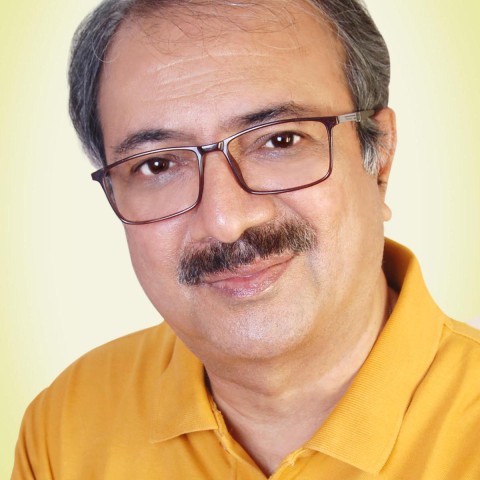
Anirudha Bhattacharjee
About: Anirudha Bhattacharjee, a graduate of IIT Kharagpur, works as an SAP Consultant out of Calcutta. However, Anirudha’s passion has always been music and its chronicling. To give a vent to his hobby, he started writing columns for The Statesman, Calcutta. Gradually, writing on cinema and especially on the music of the 1960s through the 1970s became a habit, and his first book, R.D. Burman: The Man The Music (Harper Collins), won the National Award for best book on cinema in 2012. His next book was Gaata Rahe Mera Dil (Harper Collins), an anthology of fifty songs down the ages in Hindi cinema, and it won the MAMI Award (Mumbai Academy of Moving Images) in its inaugural year, 2015. His other books include the critically acclaimed S.D. Burman: The Prince-Musician (Penguin Random House), the hugely popular Kishore Kumar: The Ultimate Biography (Harper Collins), and the recently published Basu Chatterji: And middle of the road cinema (Penguin Random House). Bhattacharjee says, "The way people treat you is a statement about who they are as a human being. It is not a statement about you."
BOOK
Name: Basu Chatterji and Middle-of-the-Road Cinema

Description:
This is the enigma of Basu Chatterji. His films did not have the box-office ingredients that could make them a distributor's hot pick, nor were they art house cinema that needed unravelling over many cups of tea. He was the quintessential 'middle-of-the-road' film-maker, a genre that he founded in Bollywood. His films, whether it be Chhoti Si Baat or Rajnigandha or Chitchor, were about common people and common problems, such as employment and love, social and economic inequalities, and joint family conflicts. Like fellow cartoonist R.K. Laxman, who created the 'common man', Chatterji too was an auteur of the common man, whose journey he portrayed with charm, delicate warmth and humour.
As a person, Basu was much like his common man: mild, unobtrusive and media-shy. He preferred not to scout for stars and mostly made his films with rookies, giving them respectability as artists. And today, names like Amol Palekar, Vidya Sinha, Pearl Padamsee, Zarina Wahab, Nandita Thakur, Girish Karnad, Rakesh Pandey, Bindiya Goswami and Ranjit Chowdhry have become central to the history of Indian cinema, thanks to Basu.
Basu Chatterji: And Middle-of-the-Road Cinema,anecdotal in nature, goes behind the scenes of his films. It places Basu's cinema and television work in the context of the changing times, like the emergence of Rajesh Khanna, Kishore Kumar and Amitabh Bachchan, the Emergency, the return of Sarat Chandra's stories, the introduction of disco and the decadent phase of Hindi cinema in the 1980s. The book celebrates the work of one of the most underrated, yet successful, film-makers in Hindi cinema.
© 2025 Vidarbha Literature Festival